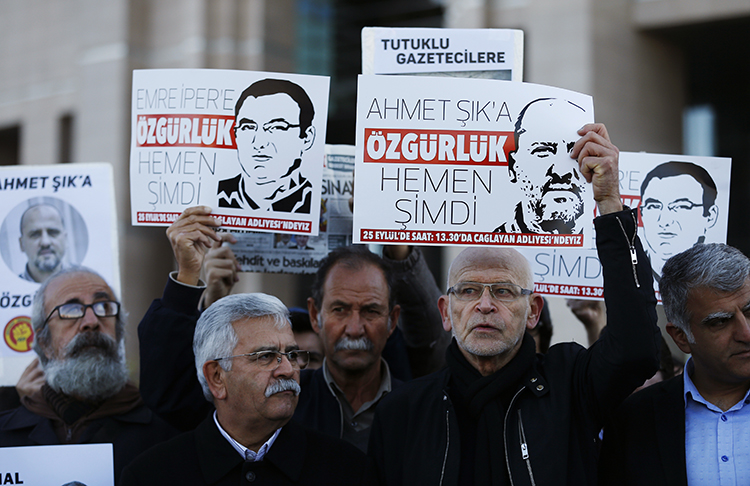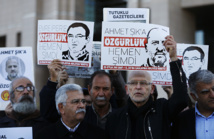He told dpa that he had been interviewed by different groups of people for eight hours and that he had been denied access to a lawyer.
The security guards had told him that seeing as he was a suspected terrorist, they could do what they liked to him.
They had then interrogated him, asking questions such as "What do you think about the war in Syria?" The guards then made him lie on the ground whilst they looked through his e-mails and messages. After eight hours in custody, he was put on a plane to Cologne, he said.
This is the fourth case of German citizens running into difficulties with Turkish authorities in one week.
On Thursday, the German Foreign Ministry said a 21-year-old soldier was being prevented from leaving Turkey and had been issued with a requirement to present himself to Turkish authorities once a week until further notice. The soldier returned to Germany on Friday.
He appeared to have offended Turkish police after he took a video of himself on Istanbul's Istiklal Avenue, and then refused to delete it after being confronted by officers, German broadcaster Hessischer Rundfunk reported. It was unclear why the video offended police.
On Wednesday, the German Foreign Ministry confirmed that a 36-year-old man with Turkish origins from the German central state of Hesse had been arrested in Antalya in July, and that the embassy was still trying to establish contact.
German media reported that the man is accused of spreading "terrorist propaganda" on Facebook.
The Foreign Ministry also said on Wednesday that a 43-year-old German man, who also has Turkish origins, had been unable to leave Turkey for the past three weeks after he performed as a musician for an association the Turkish authorities say supports terrorist organizations.
Earlier this year, Interior Minister Suleyman Soylu had said according to Anadolu news agency that "there are those in Europe and in Germany that take part in events of terrorist organizations and then make holidays in Antalya, Bodrum and Mugla."
"Let them come here and travel to our airports. We will arrest them," he had said.
It is unlikely that the increase in arrests of German citizens is intended to escalate relations between Ankara and Berlin. It is more probable that the increase is due to the holiday season in the summer, during which many Germans travel to Turkey.
In 2017, a series of arrests of German citizens in Turkey led to a diplomatic crisis between Berlin and Ankara.
Berlin has updated its travel guidelines, warning tourists that they should be aware of what they have posted or liked on social media before travelling to Turkey.
------------------------------------------------------------------------------------------------------------------









 Home
Home Politics
Politics











